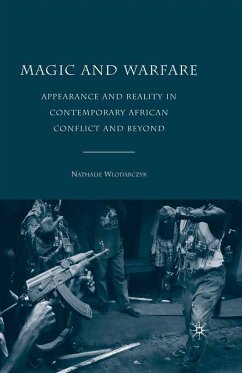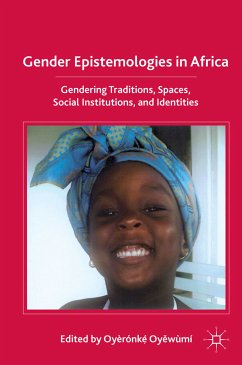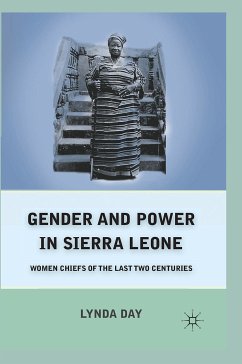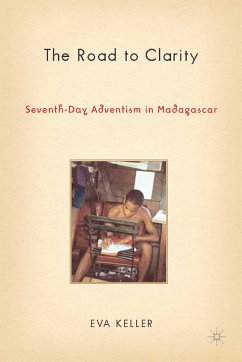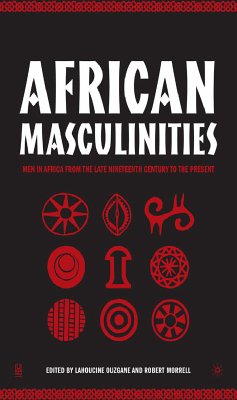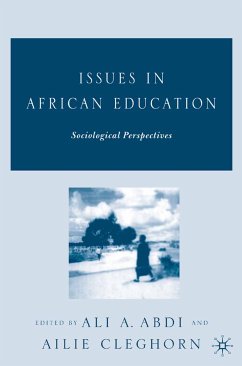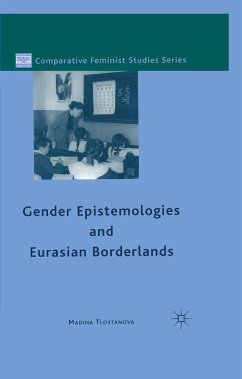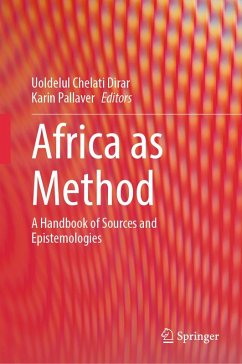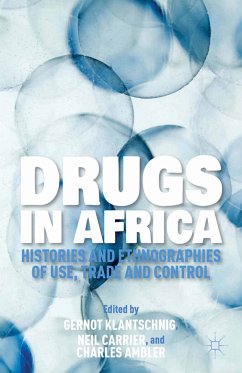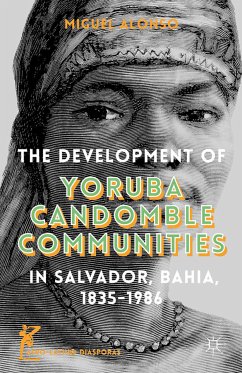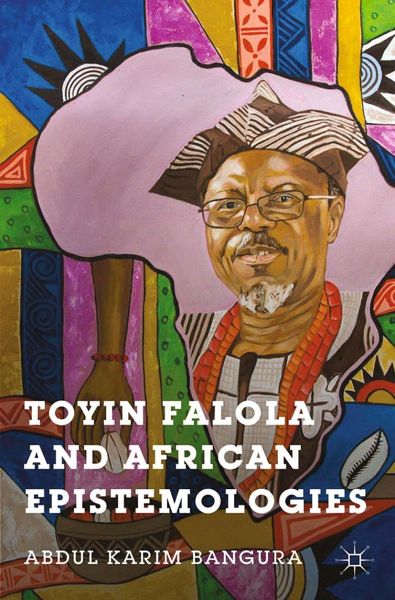
A. Bangura
eBook, PDF
Toyin Falola and African Epistemologies (eBook, PDF)

PAYBACK Punkte
20 °P sammeln!






While there are five important festschriften on Toyin Falola and his work, this book fulfills the need for a single-authored volume that can be useful as a textbook. I develop clearly articulated rubrics and overarching concepts as the foundational basis for analyzing Falola's work.
Dieser Download kann aus rechtlichen Gründen nur mit Rechnungsadresse in A, B, BG, CY, CZ, D, DK, EW, E, FIN, F, GR, HR, H, IRL, I, LT, L, LR, M, NL, PL, P, R, S, SLO, SK ausgeliefert werden.
Abdul Karim Bangura is Professor of Political Science and Research Methodology in the Department of Political Science at Howard University, USA.
Produktdetails
- Verlag: Palgrave Macmillan US
- Seitenzahl: 297
- Erscheinungstermin: 11. Februar 2015
- Englisch
- ISBN-13: 9781137492708
- Artikelnr.: 43081743
'The legendary humility of Toyin Falola disguises the unfathomable depth of his knowledge. With seven books and several essays on him, the attempt to understand Falola has become both an industry and a religion an industry because the plethora of his original ideas demand interpretation and intervention; and a religion because of his uncommon talents, extraordinary complexity, and productivity. Can it be true that Falola is an orisa, a Yoruba god? Abdul Karim Bangura, a political scientist, development economist, linguist, computer scientist and mathematician, has shifted the focus on Falola away from history to science and metaphysics, thereby grounding him in an alternative epistemology and laying a critical foundation for yet another
Mehr anzeigen
book on one of the most prolific and talented African scholars of our time.' - Bridget Teboh, University of Massachusetts at Dartmouth, USA
'Abdul Karim Bangura, the erudite and indefatigable scholar, has written a fantastic book on an extraordinary compeer, offering compelling insights into the connections between indigenous African cultures and Western-derived methodologies and epistemologies. In plumbing the essence of Toyin Falola's scholarship, Bangura displays a unique analytical approach that will surely generate a critical appreciation for a long time to come.' - Emmanuel Babatunde, Lincoln University, Pennsylvania, USA
'This book is well balanced between the focus on the announced theme (Professor Toyin Falola),the methodology, and the theoretical underpinnings. It is neither simply a biography, nor even an intellectual biography of the subject; it is far more inclusive. The topic under examination is dealt with in a holistic manner. In other words, there are no major elements that are conspicuous by their absence. It certainly contains much information that is new and that many of us in the academe would be able to use in our teaching and scholarship for many years to come.' - Mario D. Fenyo, Bowie State University of the University System of Maryland, USA
'This book has clearly articulated rubrics and overarching concepts as the foundational basis for analyzing Professor Toyin Falola's works. Each chapter is original and located within a broader epistemological canvass. Particularly, the book makes several contributions to the development of the scholarly literature on intellectual history in general and Black Intellectual History in particular. A syllabus could be developed in Black Intellectual History that includes this book as a required text. It can be used for professional workshops that would provide opportunities for scholarly exchanges. It will definitely generate a set of essays and reviews that will critically evaluate its contents, thereby contributing to the corpus of the literature for African/Africana/African Diaspora Studies.' - George Klay Kieh, Jr., University of West Georgia, USA
'Abdul Karim Bangura, the erudite and indefatigable scholar, has written a fantastic book on an extraordinary compeer, offering compelling insights into the connections between indigenous African cultures and Western-derived methodologies and epistemologies. In plumbing the essence of Toyin Falola's scholarship, Bangura displays a unique analytical approach that will surely generate a critical appreciation for a long time to come.' - Emmanuel Babatunde, Lincoln University, Pennsylvania, USA
'This book is well balanced between the focus on the announced theme (Professor Toyin Falola),the methodology, and the theoretical underpinnings. It is neither simply a biography, nor even an intellectual biography of the subject; it is far more inclusive. The topic under examination is dealt with in a holistic manner. In other words, there are no major elements that are conspicuous by their absence. It certainly contains much information that is new and that many of us in the academe would be able to use in our teaching and scholarship for many years to come.' - Mario D. Fenyo, Bowie State University of the University System of Maryland, USA
'This book has clearly articulated rubrics and overarching concepts as the foundational basis for analyzing Professor Toyin Falola's works. Each chapter is original and located within a broader epistemological canvass. Particularly, the book makes several contributions to the development of the scholarly literature on intellectual history in general and Black Intellectual History in particular. A syllabus could be developed in Black Intellectual History that includes this book as a required text. It can be used for professional workshops that would provide opportunities for scholarly exchanges. It will definitely generate a set of essays and reviews that will critically evaluate its contents, thereby contributing to the corpus of the literature for African/Africana/African Diaspora Studies.' - George Klay Kieh, Jr., University of West Georgia, USA
Schließen
Für dieses Produkt wurde noch keine Bewertung abgegeben. Wir würden uns sehr freuen, wenn du die erste Bewertung schreibst!
Eine Bewertung schreiben
Eine Bewertung schreiben
Andere Kunden interessierten sich für


